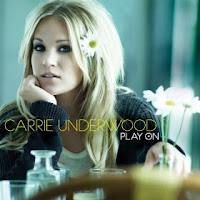 |
| .nature. |
“I've learned that people will forget what you said, people will forget what you did, but people will never forget how you made them feel.” ~ Maya Angelou 
“Life is not measured by the number of breaths we take, but by the moments that take our breath away.”
"Life has been your art. You have set yourself to music. Your days are you sonnets." ~ Oscar Wilde 
 |
| Sunset |
"I think music in itself is healing. It's an explosive expression of humanity. It's something we are all touched by. No matter what culture we're from, everyone loves music." ~ Billy Joel 
“A life without love in it is like a heap of ashes upon a deserted hearth, with the fire dead, the laughter stilled and the light extinguished” ~ Frank Jebbets
 |
| Painted in My Dreams |
“From birth to age 18, a girl needs good parents, from 18 to 35 she needs good looks, from 35 to 55 she needs a good personality, and from 55 on she needs cash” ~ Sophie Tucker
 |
| Seven Spot Ladybug 1 |
“Music is the movement of sound to reach the soul for the education of its virtue” ~ Plato
"There are very few jobs that actually require a penis or vagina. All other jobs should be open to everybody." ~ Florynce R. Kennedy
 |
| Autumn wears sparkles |
"Some cause happiness wherever they go; others whenever they go." ~ Oscar Wilde
"Use your precious moments to live life fully every single second of every single day." ~ Wieder Marcia
"Be who you are and say what you feel because those who mind don't matter and those who matter don't mind.” ~ Dr. Suess
 |
| Purple Soprano |
"Live life so completely that when death comes to you like a thief in the night, there will be nothing left for him to steal."
"Don't cry because it's over. Smile because it happened." ~ Dr. Suess
 |
| For Nature |
my life quote
Happiness is a journey, not a destination.
Dance as though no one is watching you,
Love as though you have never been hurt before,
Sing as though no one can hear you,
Live as though heaven is on earth.
~ Father Alfred D'Souza
***Please check out the links below the pictures to find more of their work!!***
***Please check out the links below the pictures to find more of their work!!***









